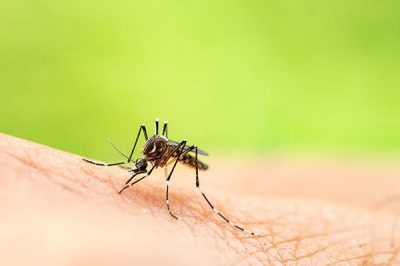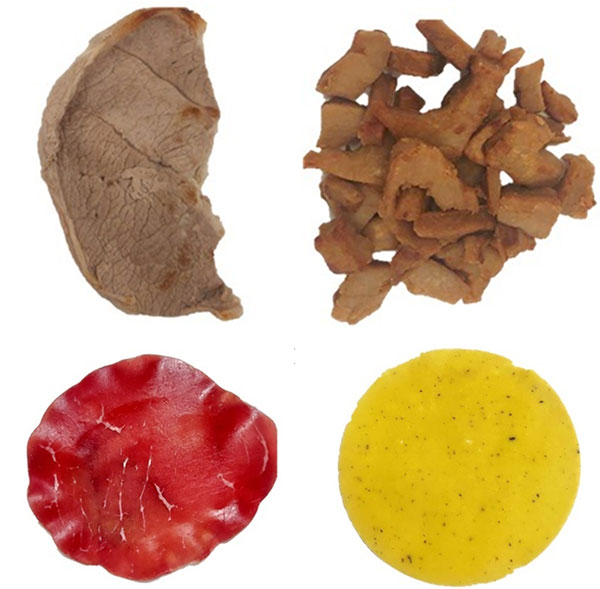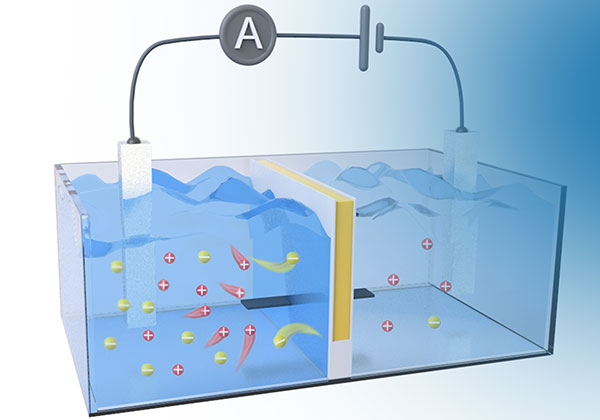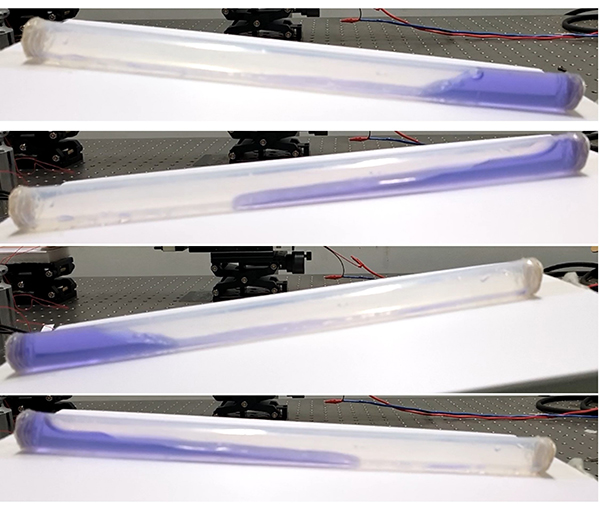FOR IMMEDIATE RELEASE
“Chemical Probes to Interrogate the Extreme Environment of Mosquito Larval Guts”
Journal of the American Chemical Society
Did you know that the world’s deadliest animal is the mosquito? And Aedes aegypti is one of the most dangerous. This bug spreads viruses that cause dengue fever, which was recently declared as an epidemic in Puerto Rico. Research published in the Journal of the American Chemical Society reports new molecules that label proteins in the unique, alkaline environment of the Ae. aegypti digestive system that could help scientists develop insecticides to fight back.

Though mosquito insecticides exist, the pests are developing resistances, and advancements are needed to reduce their numbers and slow the spread of pathogens they carry, including the malaria parasite and the Zika and dengue viruses. Fortunately for scientists, the digestive system of certain mosquito larvae, including Ae. aegypti, is unique: A pH spikes at the beginning of their midgut, creating a highly alkaline region, then tapers off to a more neutral pH environment as digestion continues. So, Michael Riehle, John Jewett and colleagues wanted to develop molecular probes that would react to this change in pH, only “activating” in the alkaline portion of the midgut.
The team synthesized two base-reactive molecules and a control molecule for their test probes. These were each introduced to groups of 30 to 40 mosquito larvae, which took them up via filter feeding and passed them through their digestive systems. In the alkaline midgut, the two new base-reactive molecules underwent a series of chemical changes, allowing them to bind to proteins in the gut and be detected by the researchers using fluorescence. Larvae that ingested the control molecule did not exhibit this fluorescence. Reaching and labeling larval gut proteins with these molecular probes creates targets that could one day be used to develop new insecticides, according to the team. Additionally, since most organisms have neutral or acidic digestive systems, these alkaline-specific molecular probes wouldn’t affect them, minimizing possible side effects and making future insecticides highly specific for their target. The researchers say that this specificity and adaptability could make insecticides more resilient to change and more effective at fighting mosquito-borne illnesses.
The authors acknowledge funding from the National Science Foundation, the 2023 Technology Research Initiative Fund and the National Institutes of Health.
###
The American Chemical Society (ACS) is a nonprofit organization chartered by the U.S. Congress. ACS’ mission is to advance the broader chemistry enterprise and its practitioners for the benefit of Earth and all its people. The Society is a global leader in promoting excellence in science education and providing access to chemistry-related information and research through its multiple research solutions, peer-reviewed journals, scientific conferences, eBooks and weekly news periodical Chemical & Engineering News. ACS journals are among the most cited, most trusted and most read within the scientific literature; however, ACS itself does not conduct chemical research. As a leader in scientific information solutions, its CAS division partners with global innovators to accelerate breakthroughs by curating, connecting and analyzing the world’s scientific knowledge. ACS’ main offices are in Washington, D.C., and Columbus, Ohio.
To automatically receive press releases from the American Chemical Society, contact newsroom@acs.org.
Note: ACS does not conduct research, but publishes and publicizes peer-reviewed scientific studies.








